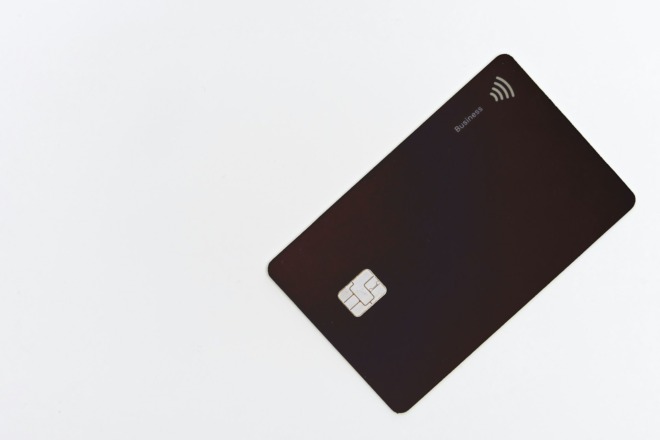You’ve dreamed of owning a business all your life. There’s only one little problem: you weren’t born with a trust fund. You’re one of the majority of Americans living paycheck to paycheck with little to nothing left to save, and each passing year makes you more depressed. How will you ever be able to pursue your passion? Is it possible to become an entrepreneur with zero capital?
Please don’t despair. While it is considerably harder, you can become an entrepreneur with zero capital. The process is long, and you will doubt yourself scores of times — but the prize goes to those who work hard and persist despite the obstacles.
Starting small is far better than never beginning at all. What steps can you take today and over the next few months to years to reach your business ownership dreams? Here’s how to become an entrepreneur with zero capital.
1. Find the Right Niche

First and foremost, you have to discover your passion and direct it in a way that can make you money. Doing something that you adore is the number one rule. Why? Being an entrepreneur means you and only you are responsible for your success. You’ll have to push yourself through doubts, delays and setbacks galore along your journey, and the only way you’ll have the energy to keep doing it is if your idea sets your soul afire.
Let’s say you want to open an Etsy shop where you sell custom knit creations. It’s your passion — heck, you knit for free simply because you love it. That’s the first quality.
Next, look at your target market and ask this question: How can I make my products unique and set myself apart? For example, if you find 20 other shops in your region selling custom-knit baby booties, you have a lot of competition. Is anyone peddling specially designed pet costumes? If not, perhaps you’ll give birth to “Kute Kitty Knitted Kreations.”
2. Develop Your Brand
The next order of your new business is branding. Your website, business cards and promotional materials should follow a uniform color and font scheme. Choose something unique that’s readily distinguishable from the competition.
However, designing your logo and color scheme is only one step in branding your business. Succeeding as an entrepreneur means building relationships — and introducing each of the new people you meet to what you do and why. Be ready with an elevator pitch that answers the following questions:
- What specific problem will your product or service solve? Create a customer persona and ask yourself why they need your kute kitty knits. Is it because their little snookum-wookum deserves only the most exclusive “kitty kaps”? Will the right “kitty kostume” make them the star of the Instagram scene?
- What makes your offerings better than the competition: You might be the only “kustom kitty” designer in Pennsylvania, but someone else out there has the same idea. What makes your creations stand apart from the rest?
3. Start on the Side
Now you’re digging into more pragmatic matters. Here’s the bottom line: Starting a business takes time and money. If you don’t have any of the latter, you will need much more of the former.
You shouldn’t quit your day job until you’re bringing in a comfortable enough income to have set aside an emergency fund and pull reliable weekly pay. Therefore, be gentle with yourself. Please don’t expect overnight success and beat yourself up — or, worse, quit — when it doesn’t happen.
Understand the following hard-to-swallow truths about becoming an entrepreneur with no capital:
- There will be times when you are too tired or don’t have time to work on your business: However, think of it as triage. You are your enterprise’s one and only asset. You need to take care of yourself. That means not messing up your day job if you need it to eat. It also means taking a break when need be. Reassure yourself that you aren’t giving up. You’re practicing commonsense self-care.
- Success will not happen overnight: Please forget the myth of the self-made billionaire. It isn’t true. Those who launch a line that takes off overnight can do so because they have the capital to fire up the machines, hire workers and mass produce from the word “go.” You don’t have that luxury, so please don’t expect similar results.
The most important thing is consistency. Do what you can, scheduling time to work on your business every week — but don’t demand daily labor from yourself. The nice thing about becoming an entrepreneur with no capital is that there’s no time pressure as long as you keep your day job.
4. Draft a Comprehensive Business Plan
“Shouldn’t I do this first,” you might ask. Here’s the thing — when you become an entrepreneur with no capital, you will make mistakes. Start doing what you dream of doing full-time someday, then hammer out the details after you’ve hit a few snafus. You’ll feel more confident writing this important document within the first year.
Why does it matter? Eventually, you’re going to seek funding. When you do, potential investors will want to see your business plan. Fortunately, drafting a professional-looking one isn’t hard, and you can find free online templates that make it even easier.
5. Gather Recommendations
Furthermore, potential investors may want more than your word before parting with their money. Having a neutral third party attest to the quality of your products or services will go a long way in convincing them.
Start gathering recommendations. It’s as simple as asking, “Please let us know how we’re doing,” in person or as part of your checkout process. You can use testimonials when pitching to investors or as a page on your website to convince potential buyers they’re right to choose you.
6. Approach Investors

Approaching investors sounds scary, but it isn’t as treacherous as it sounds. Who should you ask? It helps to begin with friends and family. Here’s one reason you start doing what you do first — if they’re skeptical, you give yourself time to prove to them that you’re serious about your endeavors. The same goes when reaching out to people you might know as business contacts or from your university days.
You can also find independent investors. For example, angel investors often come on board when a business is new, making them an ideal place for entrepreneurs with zero capital to look. You can also investigate venture capitalists, although they typically don’t invest money until your business is fairly well-established.
7. Seek Funding Alternatives
You also have other funding options. For example, the Small Business Administration offers low-interest loans for small businesses. They also provide a veritable cornucopia of advice, classes you can take and all-around good info for new entrepreneurs. If your product or service falls into the community organization category, you might qualify for a grant you don’t have to repay.
However, you should avoid taking on credit card debt. The high-interest rates simply aren’t worth it. The same goes for many personal loans. However, you might consider a home equity line of credit if you’re a homeowner — interest rates are typically much lower. Just remember that advice about not quitting your day job so that you can keep paying the mortgage until you’re ready to fly.
8. Develop a Portfolio
Developing a working portfolio as you progress as an entrepreneur is also crucial. Your search for investors and funding won’t end until you’re satisfied with your growth, and you’ll always need samples to impress potential new clients.
Update your portfolio regularly. One general business rule is that you should feel embarrassed about your first few efforts. However, you’ll hone your craft with persistence and fondly reflect one day on how far you’ve come since you first started.
How to Become an Entrepreneur
It isn’t easy to become an entrepreneur with no capital. However, you can do it as long as you have time, patience and persistence.
Follow the tips above to become an entrepreneur with no capital. Your starting line may be a mile or two back from others in the race, but that doesn’t mean you can’t finish with the prize.


